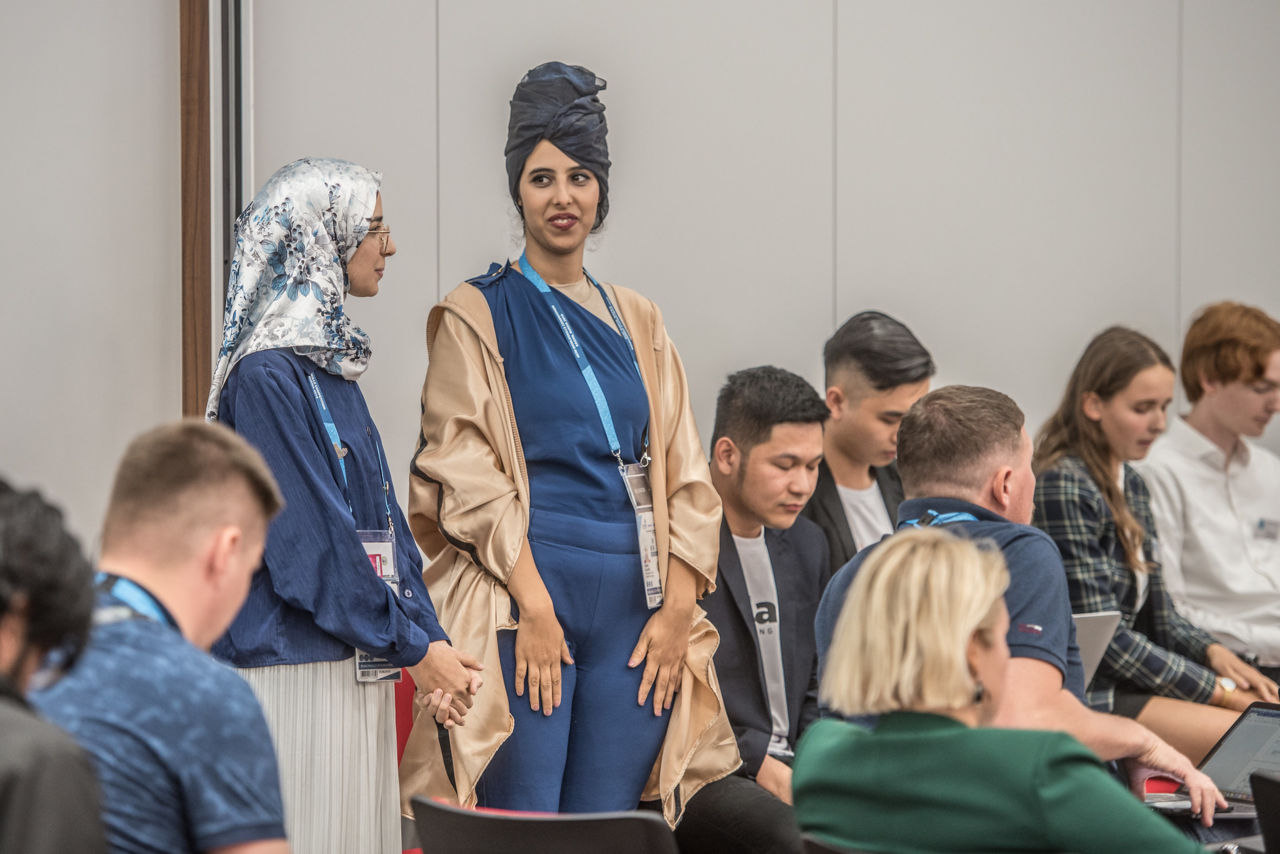24 August 2019
Youthful solutions for a better world by 2050
One is creating luxury fashion items from discarded fish skins. Another has developed a way of detecting plastic on the ocean floor, while a third is empowering children to become eco-warriors.

One is creating luxury fashion items from discarded fish skins. Another has developed a way of detecting plastic on the ocean floor, while a third is empowering children to become eco-warriors.
These are just some of the voices of young people offering practical solutions to the world’s most pressing environmental problems using the forum of the WorldSkills Conference 2019.
They brought messages of hope to a session dedicated to Our Planet in 2050 on the first day of the Conference, taking place in Russia at WorldSkills Kazan 2019.
Nawal Allaoui is barely out of college but is already the founder and CEO of SealSkin, a Morocan company founded on social enterprise principles.
The manufacturing uses natural tanning “with a focus of creating both a social and environmental solution,” said Ms Allaoui.
“Our aim is to build a sustainable brand that empowers women and coastal areas by providing job opportunities, better working conditions and a stable income,” she said.
SeaSkin is one of the finalists of BeChangeMaker 2019, the global contest for young social entrepreneurs run by WorldSkills and the HP Foundation, with the winners announced during this year’s WorldSkills Conference.
Concern about the state of our oceans also motivated 13-year old Anna Du from the United States to think of creative ways of cleaning tiny particles of plastic waste from the oceans.
“I realized that by 2050 there would be more plastics than fish in the ocean,” she said.
Her work involves using remotely controlled undersea vehicles with advanced scanning technology to detect even tiny particles. It has earned her the title of 3M Discovery Scientist.
“The only way we are going to solve this problem is if we all work together.” she told the Conference. And that doesn’t' have to be something hard. I believe if we all work together, we can solve any problem, any crisis that we face.”
Tackling a less familiar but equally toxic environmental hazard is the objective of 19-year-old Anastasia Fedosova from Russia.
The student, working with one of her instructors, found an alternative way to dispose of hazardous chemicals that are the residue of galvanizing metals.
Combining the liquid waste with other chemicals neutralizes its toxicity but also creates a new saleable by product, which has provided one factory with an addition income of one million rubles a year.
“It's impossible to go into science if you don't feel love for something," she said. "I love my planet and so I just invented this technology.”
Kehkashan Basu, an Indian student now studying at the University of Toronto, is the founder of the Green Hope Foundation and past winner of the International Children’s Peace Prize.
An environmental activist since the age of seven, she created Green Hope as a way to support children the world who want to create conservation and environmental projects.
It includes supporting projects for marginalized children in some of the world’s most deprived communities “who are now making huge ground level impact as ground level guardians.”
Now 18, she warns: “We need to realize that every action of ours impacts our environment our planet and our future, Weare essentially myopic what we cannot see we ignore. This blindness and apathy has led us to the brink of environmental meltdown which threatens our survival.
A positive note was struck by András Volom from Hungary, who has created V4SDG as a youth-led non-profit initiative to inspiring action and cooperation on the United Nations Sustainable Development Goals.
“The scale of issues like climate change and the challenges of youth employment have left many with a sense of hopelessness,” he said.
In 2019 we have managed to de-sensitive our society to such a degree that we only think in terms of numbers, discarding our emotions.” he told the Conference.
“I am pretty sure that even here at WorldSkills that there are competitors here who only think of winning. This is an impossible attitude for sustainability in 2050. We need that warm passion and compassion for others.”